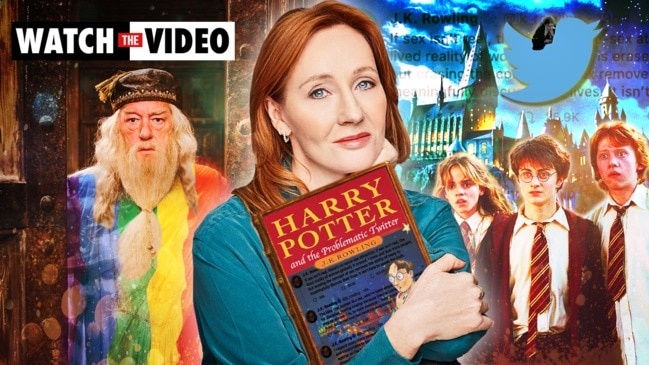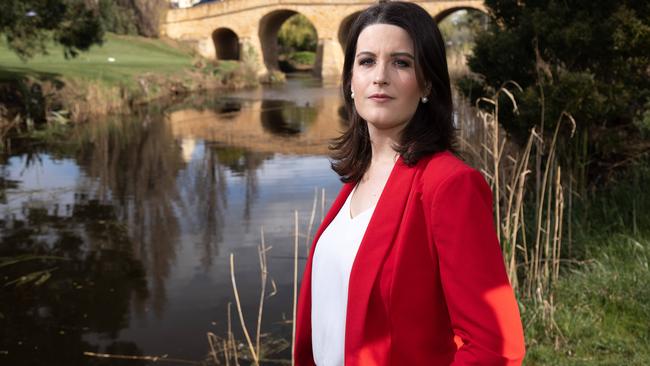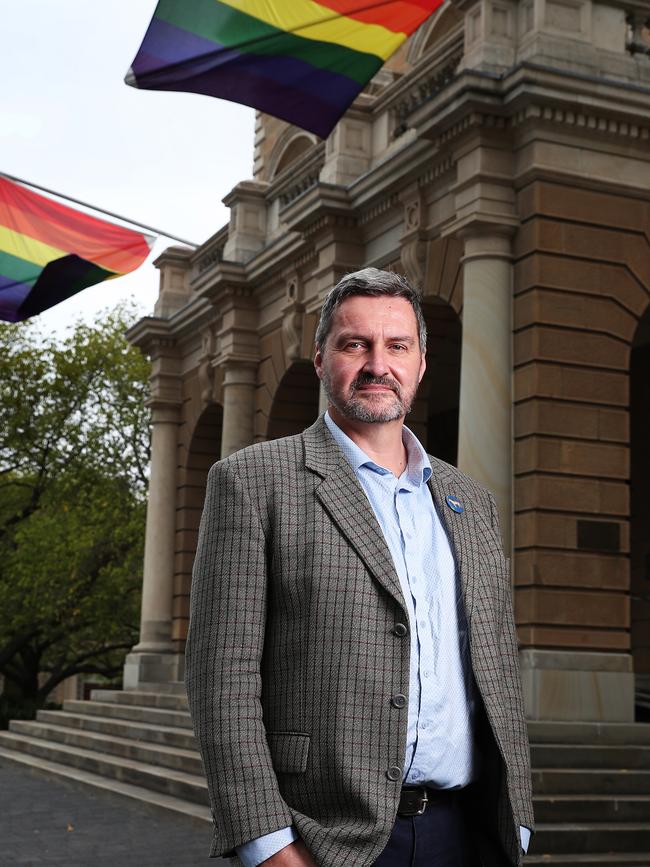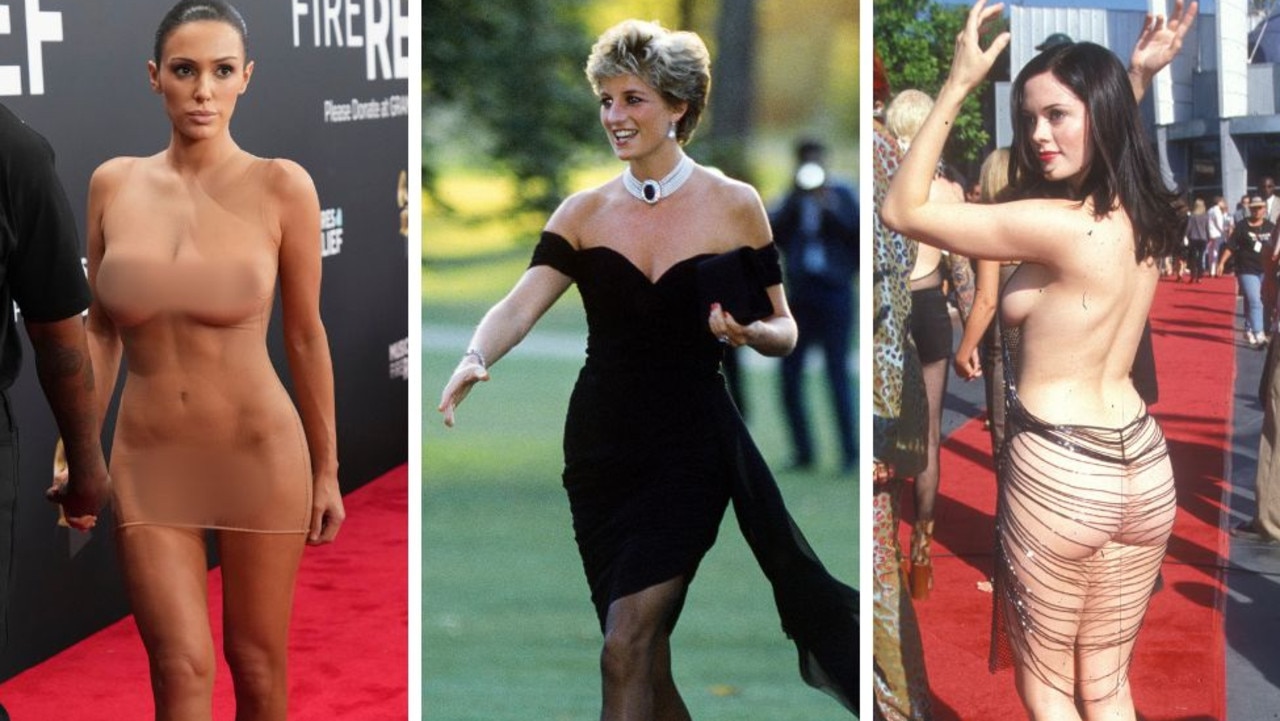Talking Point: End the baseless campaign against Tasmania’s leading anti-discrimination law
We fantastic equality laws and a passionate and forward community – so why the sustained attack on trans people, asks Rodney Croome.

Opinion
Don't miss out on the headlines from Opinion. Followed categories will be added to My News.
- Celebs are backing better literacy and so should you
- Ex-MP’s son on child exploitation material charges
TASMANIA’S best law against bullying has fostered a more inclusive society, so why is it under sustained attack?
The law in question, section 17 of the Tasmanian Anti-Discrimination Act, prohibits humiliating, intimidating, insulting and ridiculing conduct. It is similar to section 18c of the national Race Discrimination Act, but covers a wider range of grounds.
It was introduced to remedy the prejudice-inspired denigration and bullying that has too often tainted our state in the past.
Section 17 has been in the news because a complaint was made under this section against Senator Claire Chandler over her remarks which offended trans people.
The complaint was withdrawn after Senator Chandler turned down the opportunity to conciliate and open a dialogue with trans people and their families.

But that hasn’t stopped Tasmanian senator Eric Abetz, Victorian senator James Paterson and others from calling for section 17 to be watered down in the name of free speech and freedom of religion.
Their crusade isn’t new. In 2016 the state government tried to weaken section 17 by allowing humiliation and intimidation in the name of religion.
That was after Archbishop Julian Porteous complained about being asked to attend a conciliation meeting under section 17 because he distributed a booklet suggesting same-sex couples “mess with kids”.
The government amendment failed in the Upper House, which affirmed there should be no special exemptions from the law because of faith.
In 2018 a man found guilty of violating section 17 by distributing homophobic flyers, appealed to the state Supreme Court alleging section 17 violated freedom of speech and religion.
The Court dismissed the appeal, ruling no freedoms are violated by section 17.
In 2019 opponents of section 17 went national, inserting an unprecedented override of that section in the Morrison government’s religious freedom bill.
That bill has been shelved so now opponents of section 17 are hoping to use the Chandler case to re-litigate the issue in state parliament.
Why has every attempt to wreck section 17 failed thus far?
Because section 17 works.
In the 12 months from July, 2018, 145 people made complaints under section 17, most of which were resolved in conciliation to the satisfaction of all parties.
Even Archbishop Porteous has said his conciliation was “valuable” because it helped him see a different point of view.
So much for the claim that section 17 fosters divisive and vexatious litigation.
Of the 145 individual complaints, a third were from people with disability, while almost 50 per cent were on the basis of age, sex or race.

Only 6 per cent were about sexual orientation and gender identity.
So much for the myth that this is about God v gays.
Those who seek to weaken section 17 effectively want to take protections from people with disability, people of colour and women.
Looking beyond the statistics to individual cases, what we see is a law that makes Tasmanian society better.
There have been cases about the children of African refugees abused in the schoolyard; children with disability told they hold other children back; and women in the workplace told to “know your place”.
All these cases were resolved amicably and all helped ensure Tasmanians have the same opportunities in life regardless of who we are.
Because section 17 is so valuable for preventing bullying and promoting a safer society, it has been incorporated into dozens of government and non-government anti-bullying policies governing everything from the police, through schools and hospitals to businesses.
It would be the height of hypocrisy for the state government, committed as it is to ending bullying, to pull the rug out from under these organisations by wrecking the law that provides Tasmanians with the best shield we have against bullying.
Opponents of section 17 say it is subjective and unclear, which is wrong because there is a well-established body of law defining terms like “humiliation” and ”intimidation”.
They say the Equal Opportunity Commission that oversees section 17 is a tyrannical star chamber, which is also wrong because there are more review processes for the Commission’s decisions than for comparable government bodies.
They say free speech is at stake despite there being many restraints on free speech they never take issue with, and despite the accepted principle that every right comes with a responsibility not to harm others when exercising that right.
Sometimes it feels like they just don’t like prejudice being challenged, or powerful people like bishops and senators being held to account, or people from the margins of society having equal rights.
But it is precisely these features that make section 17 such an important law.
It’s time to bring the baseless, resentment-fuelled campaign against section 17 to an end.
Instead, let’s take pride in a law that makes Tasmania a world leader when it comes to ending bullying and fostering fairness.
Rodney Croome is a spokesperson for Equality Tasmania.


